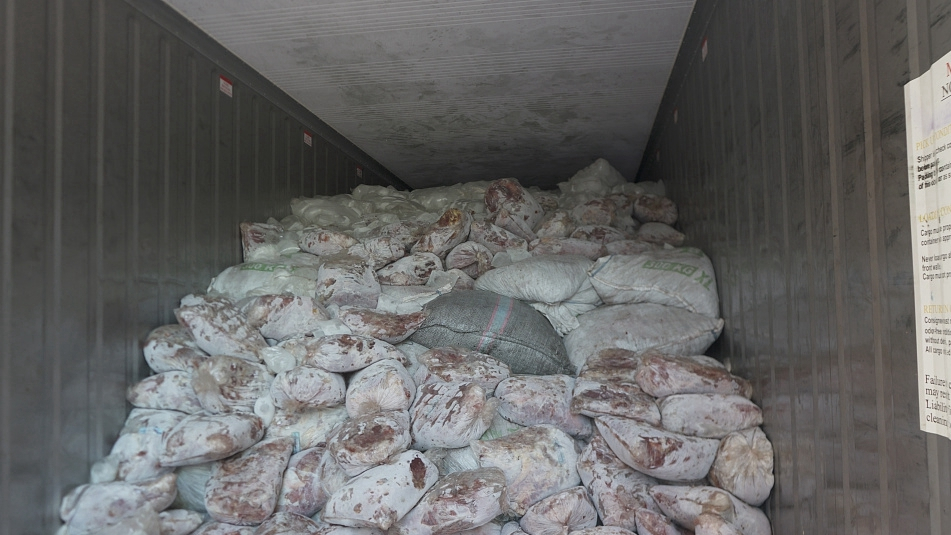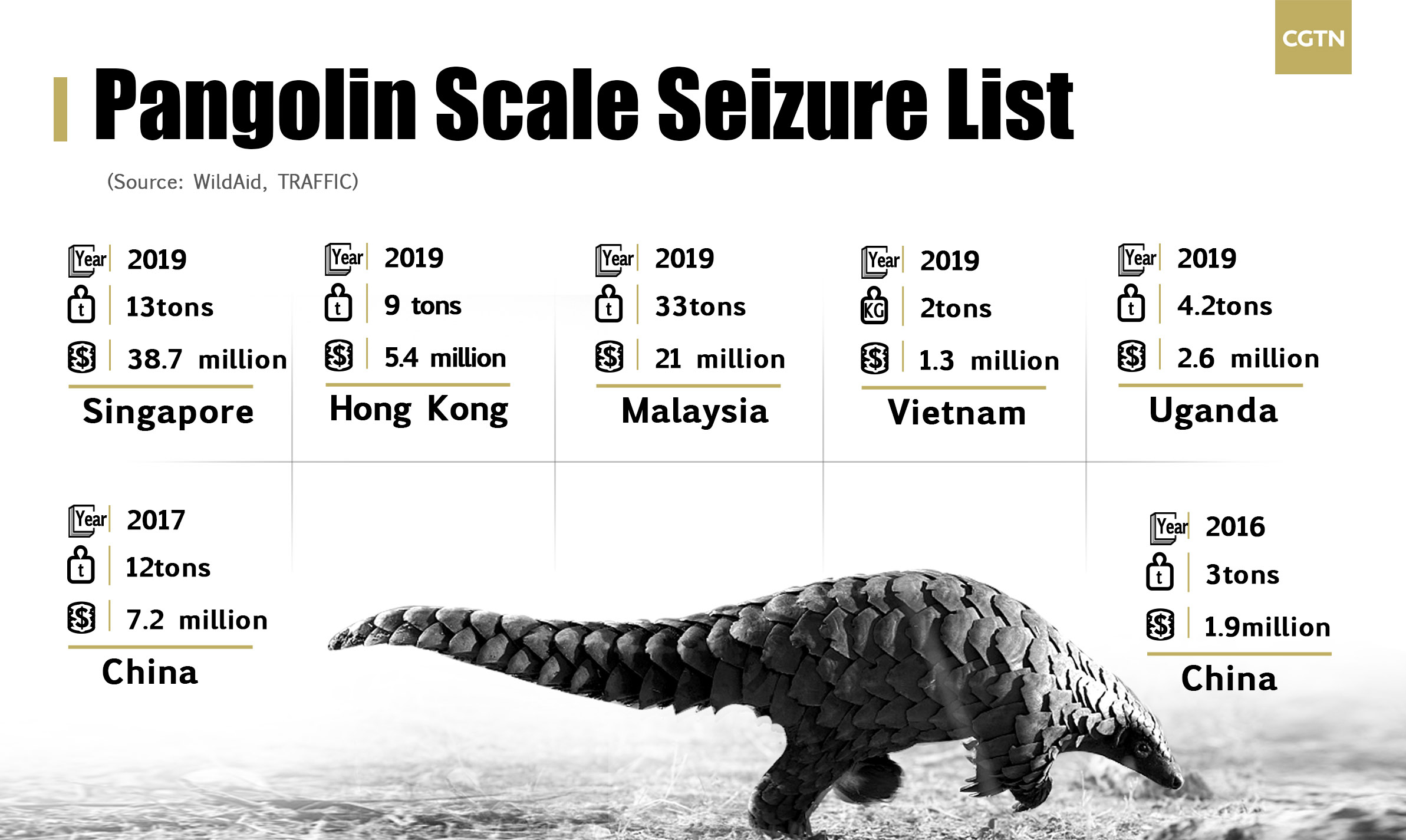
Animal
13:21, 05-Apr-2019
Another record pangolin scale seizure sparks demand for strong laws
Updated
17:27, 05-Apr-2019
By Alok Gupta

Singapore customs officials on Wednesday intercepted a record haul of nearly 13 tonnes of pangolin scales – the largest of its kind in the last five years.
"This is the largest shipment of pangolin scales seized in a single haul globally in recent years," said National Parks Board and Singapore Customs in a joint statement.
Packed in 230 bags, the value of seized scales is worth 38.7 million U.S. dollars.
Since each pangolin can yield nearly 500 grams of scales, more than 17,000 pangolins would have been brutally poached for such a massive haul, an official estimate said.
The illegal shipment, on the way from Nigeria to Vietnam, also contained 177 kilograms of ivory worth 88,500 U.S. dollars.
The entire shipment, declared as containing "frozen beef," was hidden inside a 40-foot container at the Pasir Panjang Export Inspection Station.
In order to conceal the distinct smell of pangolin scales, smugglers concealed the consignment along with frozen beef. This modus operandi is witnessing a dramatic rise.
Similar seizures at China's Hong Kong Special Administrative Region (SAR) and Malaysia – both significant transit points for illegal wildlife products – show a striking resemblance in evading customs detection.
In January, Hong Kong SAR intercepted nearly nine tonnes of pangolin scales worth 5.4 million U.S. dollars, the largest ever seizure in the city. A record 30 tonnes of pangolins were confiscated in Sabah, Malaysia in February. In both cases, consignments were packed with frozen meat.
Massive poaching has made pangolins the most trafficked mammal on the planet. Its scales are valued in traditional medicine in most parts of Southeast Asia.
Demand for strong laws to 'prevent such cases'

Wildlife experts are demanding strong laws to control large-scale poaching of pangolins. /CGTN Infographic
Wildlife experts are demanding strong laws to control large-scale poaching of pangolins. /CGTN Infographic
Concerned over the massive scale of the poaching, the International Union for Conservation of Nature (IUCN), has declared all eight pangolin species as threatened by extinction.
Wildlife protection experts believe a series of record seizures means law enforcement agencies are cracking down on the illegal trade. But wildlife protection laws need more teeth to prosecute smugglers.
Two suspects in an almost identical pangolin seizure case in Hong Kong SAR in January – which, like the Singapore case, involved frozen meat as concealment material and bags marked with the word "Induplast" – are depressingly still out on bail, Alex Hofford, Wildlife campaigner with WildAid, told CGTN.
"This highlights the fact that Hong Kong needs to put its wildlife laws under its organized crime laws as soon as possible to prevent such cases happening over and over again," he added.
The Convention on International Trade in Endangered Species of Wild Fauna and Flora (CITES), global wildlife regulator has banned the pangolin scale trade.
“All countries associated with this seizure, from source to final destination, must now work together in follow-up investigations and bring the criminals involved in this activity to justice,” CITES Secretary-General, Ivonne Higuero told CGTN.
The seized pangolin scales in Singapore are from four native African species: Giant Ground Pangolin (smutsia gigantea), the Black Bellied Tree Pangolin (phataginus tetradactyla), the Ground Pangolin (smutsia temminckii) and the White Bellied Tree Pangolin (phataginus tricuspis).
(Cover: Singapore Customs and National Parks Board in a joint-operation seized a record haul of pangolin scales, April 3, 2019. /courtesy of National Parks, Singapore)

SITEMAP
Copyright © 2018 CGTN. Beijing ICP prepared NO.16065310-3
Copyright © 2018 CGTN. Beijing ICP prepared NO.16065310-3